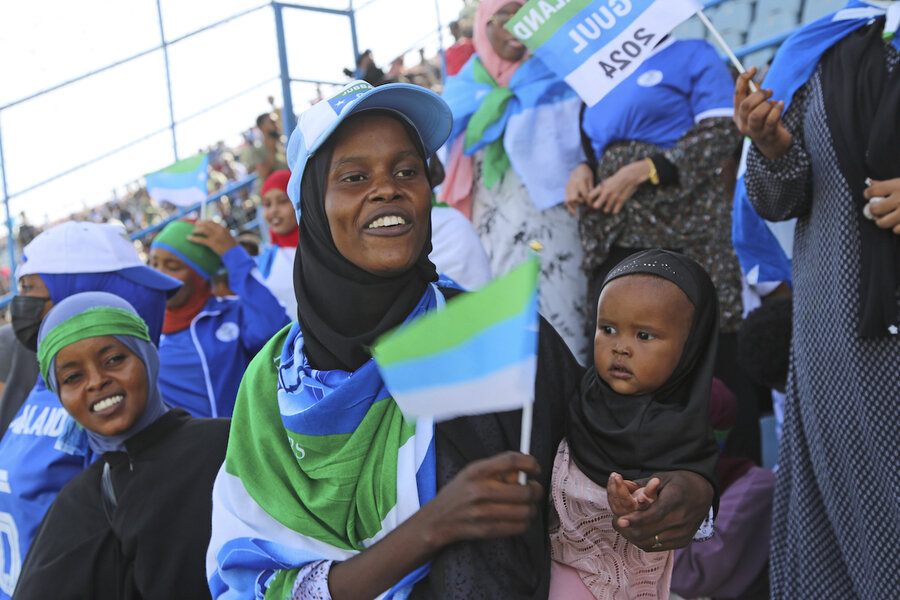Shut down by war, Somali stadium revives as soccer fans return
Loading...
| Mogadishu, Somalia
A stadium in Somalia’s violence-prone capital hosted its first soccer tournament in three decades, drawing thousands of people to a facility that had been abandoned for years and later became a base for military – and even extremists – amid civil war.
Somali authorities have spent years working to restore the national stadium in Mogadishu, and on Dec. 29, Prime Minister Hamza Abdi Barre inaugurated the national soccer tournament. The competition is a milestone in efforts to revive public life even as Al Qaeda’s East Africa affiliate, based in Somalia, remains a threat.
The fragile central government is still struggling to assert itself after the nationwide chaos that began with the fall of dictator Siad Barre in 1991, when public facilities fell into neglect or were destroyed.
But this week, the air crackled with anticipation as thousands poured into the stadium each afternoon. Crowds roared with the thrill of competition.
The Islamist extremist group al-Shabab, which has ties with Al Qaeda, still launches attacks on hotels, government offices, and other public places in the capital, including a devastating car bombing in October 2022 that killed at least 120.
But many Somalis were willing to brave the stadium, which has a heavy security presence.
“My praise be to God,” said Jubbaland player Mohamud Abdirahim, whose team beat Hirshabelle in a tense encounter on Jan. 23 that went to a penalty shootout. “This tournament, in which all of Somalia’s regions participate, is exceptionally special. It will become a part of our history.”
Hirshabelle fan Khadro Ali said she “felt as though we were emancipated.”
The Somali states of Jubbaland, South West, Galmudug, and Hirshabelle and the Banadir administrative region participated in the competition. Puntland did not participate, amid a political dispute with the central government, and Somaliland has long asserted an independence that has not been recognized internationally.
The stadium was badly damaged during the years of war. It was a base for Ethiopian troops between 2007 and 2009, and was then occupied by al-Shabab militants from 2009 to 2011. Most recently, between 2012 and 2018, the stadium was a base for African Union peacekeepers.
“When this stadium was used as a military camp, it was a source of agony and pain. However, you can now see how it has transformed and is destined to serve its original purpose, which is to play football,” said Ali Abdi Mohamed, president of the Somali Football Federation.
His sentiments were echoed by the Somali sports minister, Mohamed Barre, who said the stadium “has transformed into a place where people of similar interests can come together ... and we want the world to see this.”
This story was reported by The Associated Press.







